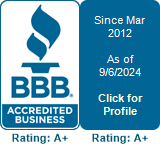Although the IRS sends several different versions of the Notice CP297 (CP297, CP297A) Notice CP297C is used most often (image below).
The Notice CP297 tells you that the IRS intends to levy against your property but the Notices CP297A and CP297C tell you that the IRS has already seized your property.
These Notices CP297A & CP297C are dangerous because the IRS indicates that they have already seized some or all of your property. The Notice invites you to file for a Collection Due Process hearing. However, be warned, filing for a Collection Due Process hearing extends the Statute of Limitations on collection.
Another purpose of the notice is to tell you the IRS has seized any Federal payments to which the business is entitled. However, because they have already sent you a formal Notice of Intent to Levy (as required by law) the IRS could seize any property.
Respond to Notice CP297
Your reaction to this will likely depend on what type of tax is involved. Also, consider whether the business is still (& wants to remain) on-going. If the tax is for Employment withholding taxes, then the owners of the business have an interest in paying the tax. They are personally responsible for the Trust Fund Recovery Penalty portion of the tax. If the company is no longer operating then the owners will likely have to fight the IRS personally. See Business Taxes & Collection Prep Steps.
If the letters you're receiving from the IRS are coming from an Automated Collection Center (ACS) it will be more difficult for the IRS to seize tangible property. A local revenue officer can seize any property. But, there are advantages to having a local revenue officer on the case. For instance, local Revenue Officers can abate penalties immediately.
The IRS likes to seize easy targets first. So, they go after the bank accounts if you do not respond in the correct way. Next, they look to accounts receivables, which can be devastating for a business. The business customers will become aware of the company's tax trouble. IRS Revenue Officers have the power to lock the business down.
Take Action
We must act quickly to stop IRS contact with the business customers & prevent any levies on the business bank accounts or property. Often times, there are returns to be filed and financial information to gather. This can be difficult, but not impossible.
Whatever strategy you take to handle this debt, you will likely be required to complete a Form 433-B to disclose the business finances. Take our TaxHelp Webinars to learn the tricks & traps of completing this form!
And, please follow the IRS Notice CP297C Prep Steps. Afterwards, come see Mr. Hopkins for tax attorney advice in Colorado Springs or Pueblo before proceeding!
Various Types of IRS Notice CP297C:







